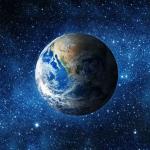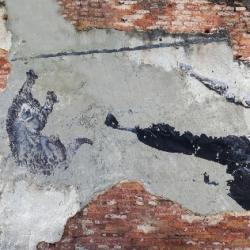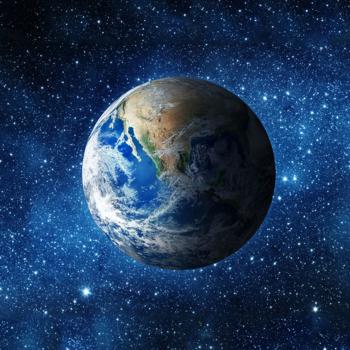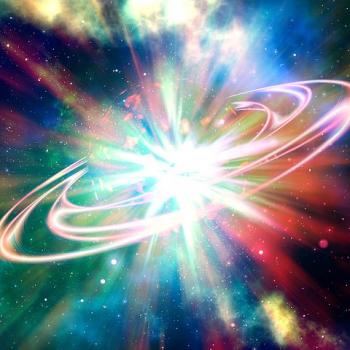 There is a growing sense that the more educated you are, especially in the field of Science, the more likely you are to be an atheist or agnostic. The Qur’an actually challenges us to ponder over nature as signs of God, rather than as reasons to disbelieve, as we will see below.
There is a growing sense that the more educated you are, especially in the field of Science, the more likely you are to be an atheist or agnostic. The Qur’an actually challenges us to ponder over nature as signs of God, rather than as reasons to disbelieve, as we will see below.
There are two prevailing myths when it comes to religion and science.
- Scientists don’t believe in God and/or are nonreligious
- Religious people don’t believe in Science. Religious people are not scientists.
I will not address the first point here except to say that this may be partly true as the rate of atheism, or disaffiliation from organized religion is on the rise and disproportionately higher in the scientific community. However, it won’t be true to make a statement that the scientific community does not believe in God.
For those who use science as basis for their disbelief:
When they find a scientific reason for certain ‘natural” phenomenon, they somehow start to conclude as if it means there is no God who created these phenomenon. When they find out that the universe started with a big bang, or the origin of life was from the water and that various species developed/evolved from a single source, they somehow interpret this as a sign of God-less creation and evolution.
They tend to forget that all of this knowledge tells us the HOW part, but it fails to answer/address the WHY part.
The Qur’an is full of passages that address the “nature” and it in-fact invites us to ponder and contemplate, with a focus on the WHY part as well as the WHO part- WHO made all this possible? In this article, I will quote a series of four verses that caught my attention (again)recently.
These four verses are from chapter 21, “The Prophets”.
Do the Unbelievers not see that the heavens and the earth were joined together (as one unit), before we clove them asunder? (another translation- “before we split them apart?”) .We made from water every living thing. Will they not then believe? 21:30
And We have set on the earth mountains standing firm, lest it should shake with them, and We have made therein broad highways (between mountains) for them to pass through: that they may receive Guidance. 21:31
We made the sky a protective ceiling. Yet they are turning away from Our signs. 21:32
It is He Who created the Night and the Day, and the sun and the moon: all (the celestial bodies) swim along, each in its rounded course. 21:33
The Big Bang/Aquatic Origins of Life in the Quran
I will address the last three verses in the next post, but here my focus is on the first verse- 21:30
This verse points to two key astrophysical and biological theories currently accepted by scientists: the Big Bang theory and the origin of life from water.
- The splitting of the heavens and the earth: The word used in Arabic (Fataq) in this verse refers to a process of separation, breaking or splitting of something whose elements were initially fused together. Moreover, the word used for the skies (“heavens”) is in plural, often used in the Qur’an in reference to all the zones of space in the universe.
- The origin of life from water: The verse states, “We made from water every living thing.” Scholars have used this to mean that every living object (protoplasm) is predominantly made of water. Other scholars have interpreted this in reference to the origin of life on earth from an oceanic source. There is no uniformly accepted model in terms of scientific theories about the origin of life on earth, but the “deep sea vent theory” is one of them, and many scientists believe that life on earth started on the oceanic floor. No matter how the second part of 21:30 is interpreted, either one seems to have scientific basis for it, according to current thinking.
The other point I wanted to emphasize was the question asked at the end of the verse- “Will they not then believe?”
In other words, finally figuring out that the universe came into being with the big bang some 14 billion years ago, or finding out that life is either predominantly made of water and/or has aquatic origins, should not lead one to disbelieve but actually are the very reasons to believe in God’s creativity.
According to the American Museum of Natural History:
The Big Bang was the moment 13.8 billion years ago when the universe began as a tiny, dense, fireball that exploded. Most astronomers use the Big Bang theory to explain how the universe began. But what caused this explosion in the first place is still a mystery.
Not only WHAT caused the explosion is still a mystery but HOW did what was present before the Big Bang come into existence in the first place?
How could life randomly and spontaneously develop from a very simple cell to a highly complex organism we see today (actually millions of organisms) without a purpose and without a planner is mind-boggling. Think of how many super smart scientist are working for so many years on artificial intelligence to reproduce a tiny piece of what we can do “naturally”. As a physician when I study natural processes and millions of mechanisms to maintain normal body function, I find it hard to fathom that this is a result of random, spontaneous process over millions of years without a super intelligent planner.
This is why the Qur’an challenges us to ponder “nature” and then to ask ourselves as to why we would still not believe in God. Finding out how our body naturally fights the foreign harmful invaders on a daily basis, and finds ways to heal up an open wound are not reasons to disbelieve. They are the very reasons to believe in God-the Creator-in-Chief. These are just a couple of thousands of examples, if we were to contemplate a little deeper.
The Qur’an was revealed some 1400 years ago. The Carbon dating of some of the manuscript confirms that rough timeline. For a Scripture to talk about the Big bang at that time, to me, is one of the many reasons for my belief in that One God. At the end of the day faith means you don’t need a “proof” for God’s existence- the type of proof we need in a lab experiment using the existing scientific methodology. Reading these passages does not make me believe in God, but rather strengthens my faith in God.
In part 2, I will cover the last three verses in more details.
Portions of the article were based on the section “Quran and Science” of my book, The Quran: With or Against the Bible?
Don’t forget to sign up for my newsletter (see sign up in the upper right corner) to receive the latest blog posts.
Images: courtesy of Pixabay.com
















